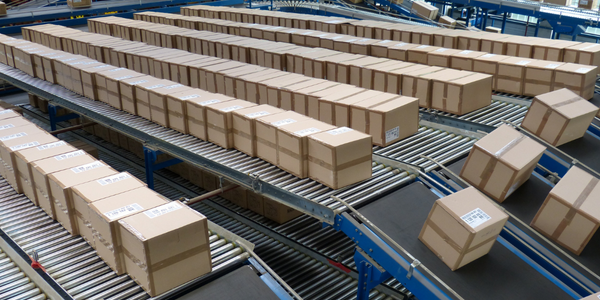Applicable Industries
- Consumer Goods
- Packaging
Use Cases
- Digital Twin
- Intelligent Packaging
About The Customer
ACMA is a Coesia company that specializes in the design and construction of automatic packaging machines for consumer goods. The company has a rich history and has been a significant player in the industry for many years. ACMA is known for its commitment to innovation and quality, always striving to deliver the best solutions to its customers. The company has a wide range of clients, from small businesses to large corporations, and caters to various sectors, including food, beverage, personal care, and pharmaceuticals. ACMA's partnership with an undisclosed firm for over two decades demonstrates its commitment to long-term relationships and continuous improvement.
The Challenge
ACMA, a Coesia company, is a leading firm in the design and construction of automatic packaging machines for consumer goods. Despite their success, they faced a significant challenge in developing a new flexible, smart, and high-speed automatic feeding system for their wrapping machines. The company needed to ensure faster time-to-market, a smaller footprint, and higher productivity. The challenge was to find a solution that could meet these requirements while also being sustainable and flexible. The company had been partnering with an undisclosed firm for over two decades, implementing their motion control and industrial automation solutions. However, the need for a more advanced solution was evident to keep up with the evolving market demands and to maintain their competitive edge.
The Solution
To address the challenge, ACMA turned to EcoStruxure Machine solution, which included industrial robotics and digital twin software. The EcoStruxure Machine solution is a comprehensive, IoT-enabled framework that allows for the seamless integration of smart devices, systems, and services. The solution's industrial robotics component provided the necessary flexibility and speed for the automatic feeding system. The digital twin software, on the other hand, allowed ACMA to create a virtual model of the system, enabling them to test and optimize the system before actual implementation. This not only reduced the time-to-market but also minimized the risk of potential issues during the deployment phase. The solution's smaller footprint and higher productivity were in line with ACMA's objectives, making it an ideal choice for their needs.
Operational Impact
Quantitative Benefit

Case Study missing?
Start adding your own!
Register with your work email and create a new case study profile for your business.
Related Case Studies.
.png)
Case Study
Improving Vending Machine Profitability with the Internet of Things (IoT)
The vending industry is undergoing a sea change, taking advantage of new technologies to go beyond just delivering snacks to creating a new retail location. Intelligent vending machines can be found in many public locations as well as company facilities, selling different types of goods and services, including even computer accessories, gold bars, tickets, and office supplies. With increasing sophistication, they may also provide time- and location-based data pertaining to sales, inventory, and customer preferences. But at the end of the day, vending machine operators know greater profitability is driven by higher sales and lower operating costs.

Case Study
IoT Data Analytics Case Study - Packaging Films Manufacturer
The company manufactures packaging films on made to order or configure to order basis. Every order has a different set of requirements from the product characteristics perspective and hence requires machine’s settings to be adjusted accordingly. If the film quality does not meet the required standards, the degraded quality impacts customer delivery causes customer dissatisfaction and results in lower margins. The biggest challenge was to identify the real root cause and devise a remedy for that.

Case Study
Zenon the Ideal Basis for An Ergonomic HMI
KHS develops and produces machines and equipment for filling and packaging in the drinks industry. Because drinks manufacturing, filling and packaging consist of a number of highly complex processes, the user-friendly and intuitive operation of equipment is increasingly gaining in significance. In order to design these processes as simple as possible for the user, KHS decided to introduce a uniform, transparent and standardized solution to the company. The HMI interface should meet the requirement for people with different qualifications and enable them to work on a standard platform.

Case Study
Series Production with Lot-size-1 Flexibility
Nobilia manufactures customized fitted kitchens with a lot size of 1. They require maximum transparency of tracking design data and individual processing steps so that they can locate a particular piece of kitchen furniture in the sequence of processes.





